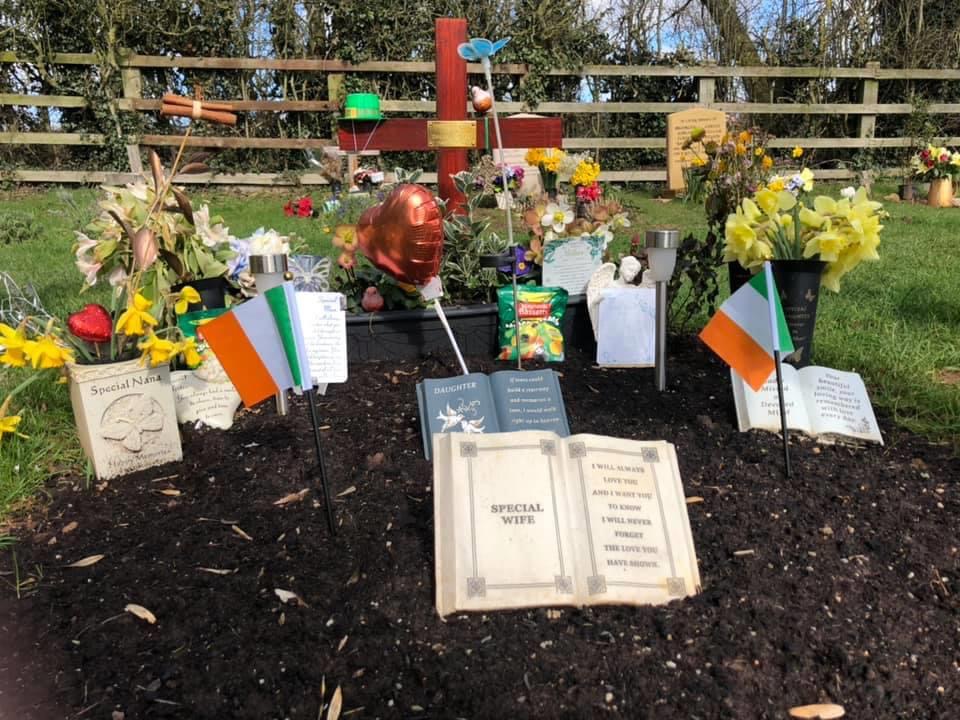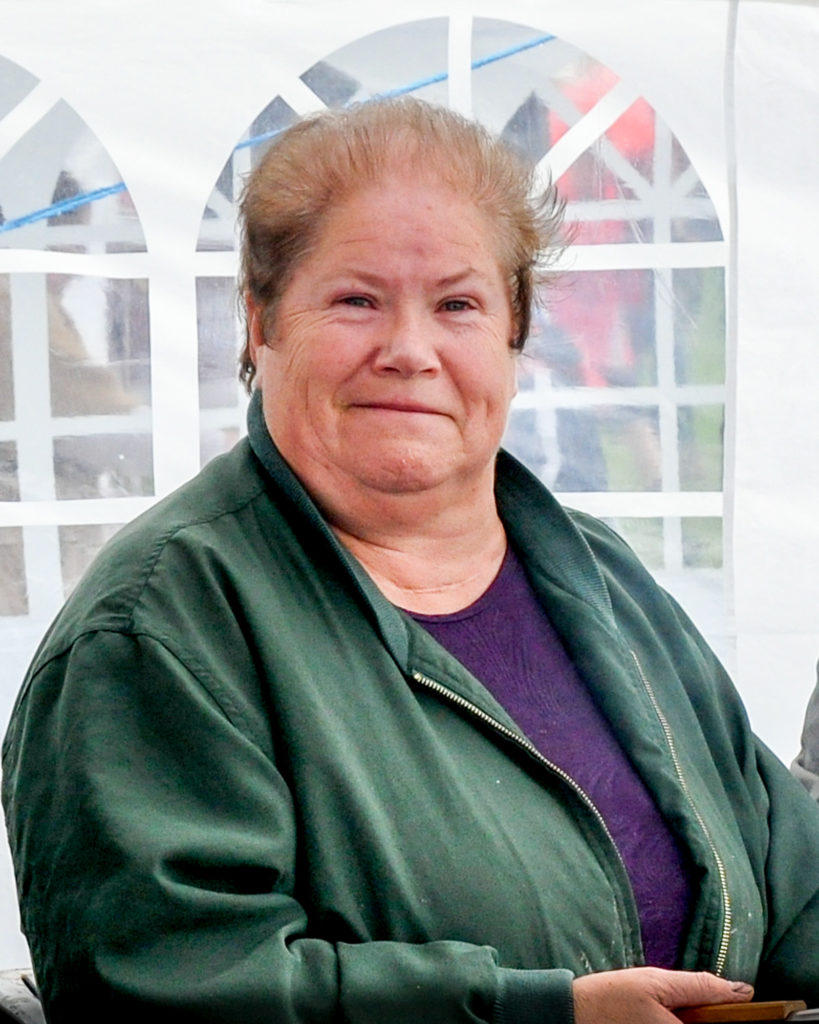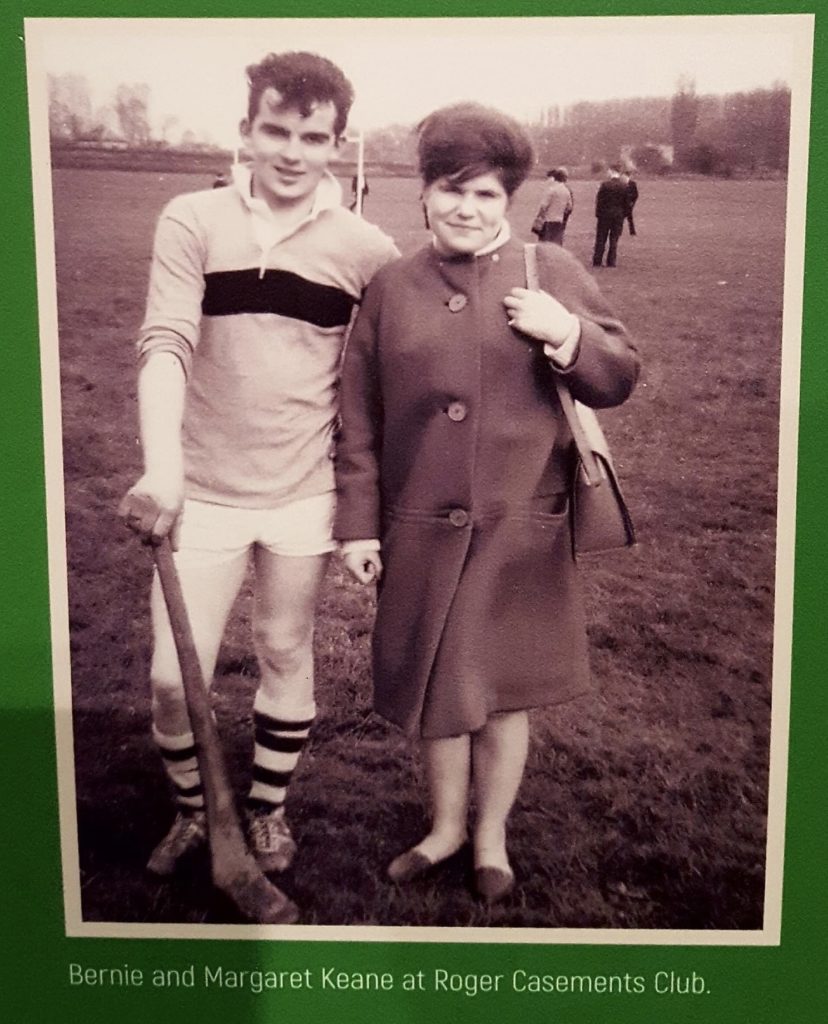A FAMILY who were refused permission to inscribe their mother’s gravestone with a phrase in Gaelic have had their bid to appeal the decision rejected by the same judge who ruled against them.
Westmeath native Margaret Keane died in Coventry in 2018 – a city which she had made her home over many decades and where she and her husband Bernard raised six children.
Two years later that family is still battling to have their intended inscription placed on their mother’s headstone, at her graveside in the church yard at St Giles Church, Exhall.
Last month they received the devastating news that the Chancellor of the Diocese of Coventry, Stephen Eyre QC, had ruled the phrase ‘In our hearts forever’ could not be allowed on her gravestone in Gaelic in “English-speaking Coventry” without a translation, as it could be deemed to be a “political statement” or some kind of “slogan”.
 Margaret Keane's grave at St Giles Church in Coventry
Margaret Keane's grave at St Giles Church in CoventryThe Church of England and the Bishop of Coventry, Christopher Cocksworth were quick to distance themselves from the anti-Irish ruling – claiming it did not reflect any “national Church of England policy” – and the Keane family confirmed their intention to appeal the decision this month.
But in another “painful” blow to the family, their solicitors have confirmed that Mr Eyre has now refused them permission to appeal his decision.
Mr Eyre’s second refusal now forces the family to take legal steps by seeking permission from the Dean of the Arches (of Canterbury) to appeal the original ruling.
Speaking on behalf of the family, two of Margaret’s daughters, Caroline Newey and Bez Martin, said: “Being forced to defend our original application through a lengthy legal process is an insult to the very memorial we wish to erect.
“It subjects our family to a painful suspension of the grieving and healing process and feels very cruel.”
 Co. Meath native Margaret Keane died in 2018 (Pic: Chris Egan)
Co. Meath native Margaret Keane died in 2018 (Pic: Chris Egan)They added: “We are a very close family and our world was turned upside down when we lost our mum in tragic circumstances.
“Our hurt and loss has been made so much worse by not being able to have a final memorial on her grave.
“Mum and dad were so proud of their Irish heritage and it is so important that their grave should have a loving tribute to them in the Irish language. This will be my dad’s final resting place too and this is causing our whole family a lot of distress.”
The family has instructed Caroline Brogan, a solicitor at Irwin Mitchell, as well as Caoilfhionn Gallagher QC and Mary-Rachel McCabe, from Doughty Street Chambers, to bring a legal appeal on their behalf.
The lawyers have agreed to act on a free of charge basis.
 Margaret Keane and husband Bernard, pictured at Roger Casements GAA club in their early days in Coventry
Margaret Keane and husband Bernard, pictured at Roger Casements GAA club in their early days in Coventry“We are very disappointed that we are being forced to take the next steps in our legal battle, but we will continue to push for what we, and many others, believe is right,” the family added.
Ms Brogan explained: “Our clients have not chosen to be in this position, engaged in possibly lengthy litigation in the ecclesiastical courts. They simply filled in what they believed to be a standard form for a memorial and thought that would be a straightforward process. “However, the matter ended up being referred to the Chancellor of the Diocese of Coventry, who ruled against them on May 6, 2020.”
She added: “Regrettably there is no simple, quick way of reversing his decision; this is a judicial decision and there is a specific process which must be followed.”
This week the vicar at St Giles Church spoke exclusively to The Irish Post about the controversy now surrounding Mrs Keane’s gravestone.
“We were, I would say, as taken aback as the [family] were that the issue with the use of the Irish language was seen to be so substantial for the Chancellor in his final ruling,” the Reverend Gail Philip told us.
Rev Philip further revealed that her church welcomes all languages in its churchyard – which does feature gravestones with non-English inscriptions without translations, adding: “That’s why we feel so saddened [by this ruling].”

